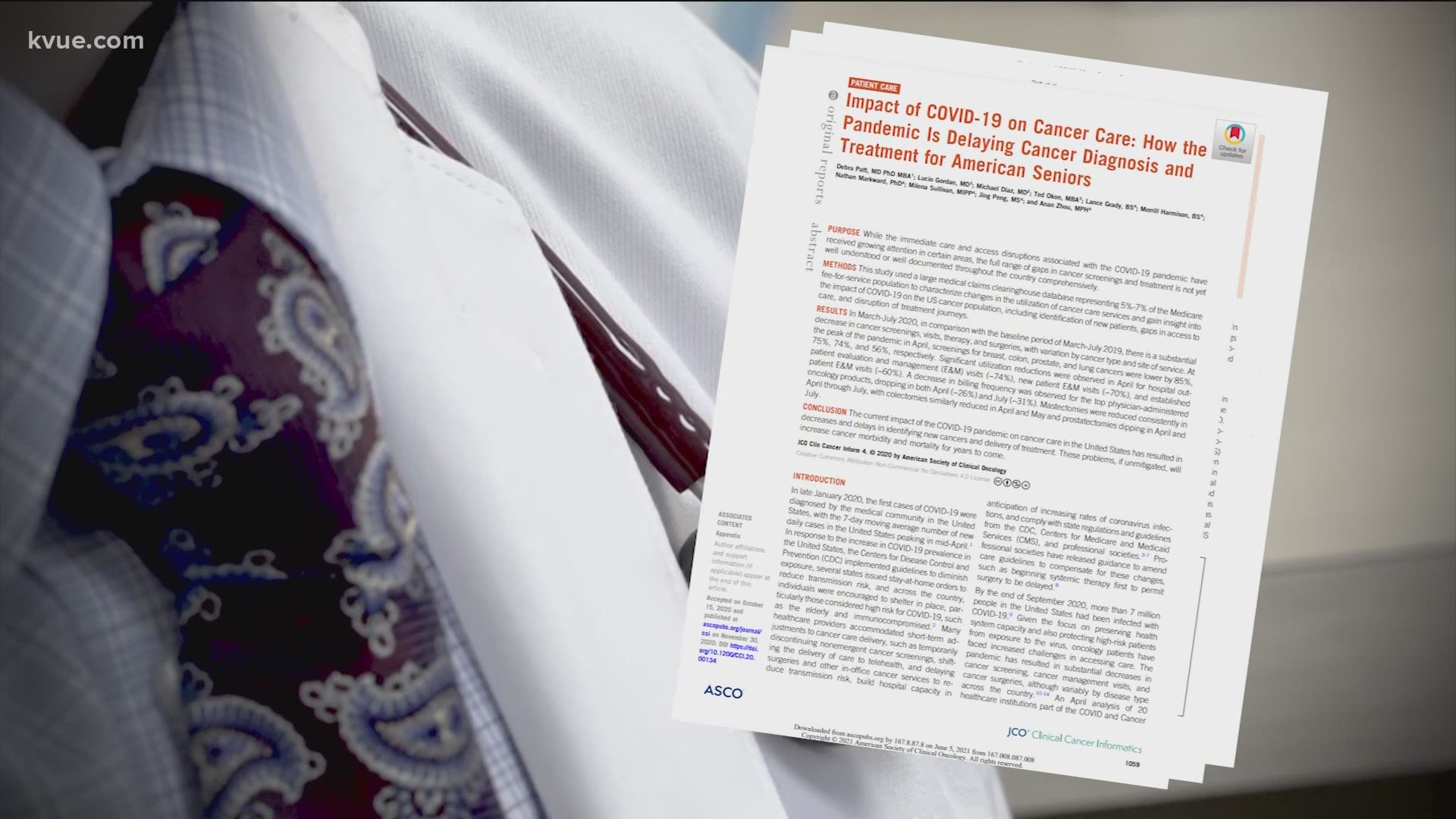AUSTIN, Texas — Doctors are urging people to go in for their routine annual checkups after millions of cancer screenings were missed last year because of the pandemic.
According to research published in the Journal of Clinical Oncology, the lack of screenings is causing decreases and delays in identifying people with cancer and treating them.
Dr. Debra Patt, the vice president at Texas Oncology and the lead on the study, said between social distancing, avoiding non-essential trips to the doctor's office and trying to find balance during the pandemic, going to get a routine checkup was crossed off many people's lists.
She is already seeing the consequences.
"Now they are getting screened and their breast cancers are much more advanced. They have had palpable cancers that they felt grow over the last year," Patt said.
The research published in November of last year focused on breast, colon, prostate and lung cancers.
The biggest drops happened during each peak in the pandemic, like April, July and November, when screenings in Texas fell by 80%, Patt said.
However, this is not the case for every area and demographic.
People in urban cities where there was a greater risk for the spread of COVID-19 struggled more with this issue compared to rural communities that were able to carry on with more normal operations during the pandemic, Patt explained.
Some people have also been more significantly impacted by this issue.
"This is a burden that was born disproportionately by individuals that are socioeconomically disadvantaged or parts of ethnic and racial minorities," Patt said.
Over at the Department of Radiation Oncology at the University of Kansas, researchers found the Northeast experienced the sharpest declines in screenings while the Midwest and South had the highest rates.
However, that does not mean Texans are in the clear.
As the outlook for cancer diagnoses looks worse heading into the next year, doctors say it's possible to bring things back to where they were before and even better.
"They need to have their screening mammograms for any individual who is 45 and above. Even in the absence of family history, they need to have colorectal cancer screening for individuals with a strong smoking history. They need to have lung cancer screenings. For men at risk, they need to consider prostate cancer screening," Patt said. "Early detection saves lives. This is an opportunity to cure cancer, to diagnose it earlier."
PEOPLE ARE ALSO READING:

